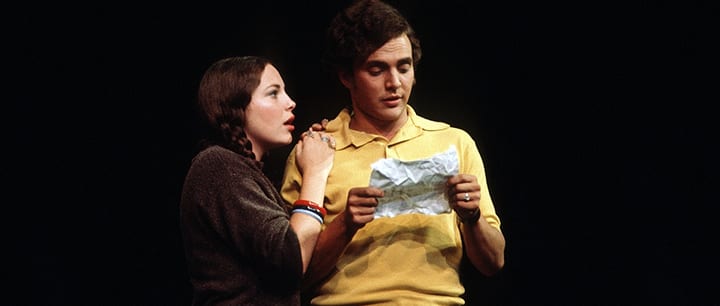 Directors, flymen, producers, actors, and even box office staff – there are so many options available to those who have a passion for the performing arts industry. All careers in acting for stage are linked by one thing: a shared love and appreciation for creating live theater.
Directors, flymen, producers, actors, and even box office staff – there are so many options available to those who have a passion for the performing arts industry. All careers in acting for stage are linked by one thing: a shared love and appreciation for creating live theater.
Because of the associated pressures, and long and surprisingly unsociable hours related to the industry, many people who maintain careers in acting do so because they love what they do. Sequins don’t sew themselves on during the early hours of the morning; only dedicated theater lovers can do the job! If you find yourself with this bubbling desire to work in the industry, but are not quite sure where you’d fit in, continue reading through this quick reference guide. Here we’ll take a closer look at the various careers in acting linked to live theaters.
Producer
As one of the key players of making the show not only go on, but happen in the first place, the producer is responsible for sourcing the funds to finance the show and managing financial risks before and during production. Directly related to the budget is of course the cast and crew, so the producer also sources the various different roles.
Art Director
The art director is the creative individual responsible for the vision and artistic direction. He or she creates and directs ‘the book,’ which contains all the prompts for performers, lighting, sound, set, and so on. Should the show be traveling, the art director may choose to hand over this book to a stage manager, who will guide the production from there on out.
Stage Management Team
The team of stage managers and assistant stage managers play an integral role of directing the crew and cast. You’ll often find the head stage manager seated stage left in the corner. The rest of the team plays the vital role of giving the actors and performers their calls, and manning the wings backstage during scene changes.
Actor
This is probably the leading job most of us think of when someone mentions a career in acting. Sure, it’s the glitzy one that everybody gets to see, but most working actors know just how much of a team effort a successful production actually is. As an actor, most of your time is spent interpreting the work of a writer, with the help of a director. Tons of character research, preparation, and hours of rehearsals go into every convincing performance. Most professional actors work with acting coaches to help them really hone their craft.
Stage Crew
From the most seen job, to the least seen one – the stage crew are often called the ‘hands’ of a production. This team of muscle moves props and any free-standing scenery on the stage. Usually employed casually per show, the stage crew works closely with the technical team to ensure that all moving stage machinery (trapdoors, bridges, lifts, etc.) are operating safely.
Technical Team
If you’re a gadget whiz with a flair for creating something dazzling, then there may be room on the technical team for you! This team ensures that all the technical aspects of the show — like lighting, sound, and special effects — run as smoothly as possible.
Flyman
These burly guys manually operate different parts of the scenery from high walkways that can be found above the stage. These walkways are called ‘fly doors,” hence the name.
Marketing/Promotions
As in any marketing-related job, this role includes promotions and overseeing ticket sales. The marketing or promotions team will oversee every aspect of the theater’s advertising and promotional material, ranging from old-school fliers to social media.
There are plenty of other types of careers in acting, each requiring their own set of skills. Whether you see yourself on stage or behind the scenes, if you put in some serious dedication to mastering your craft, you’ll be one step closer to finding your dream career!
Photo by Seattle Municipal Archives
Jill Cole

